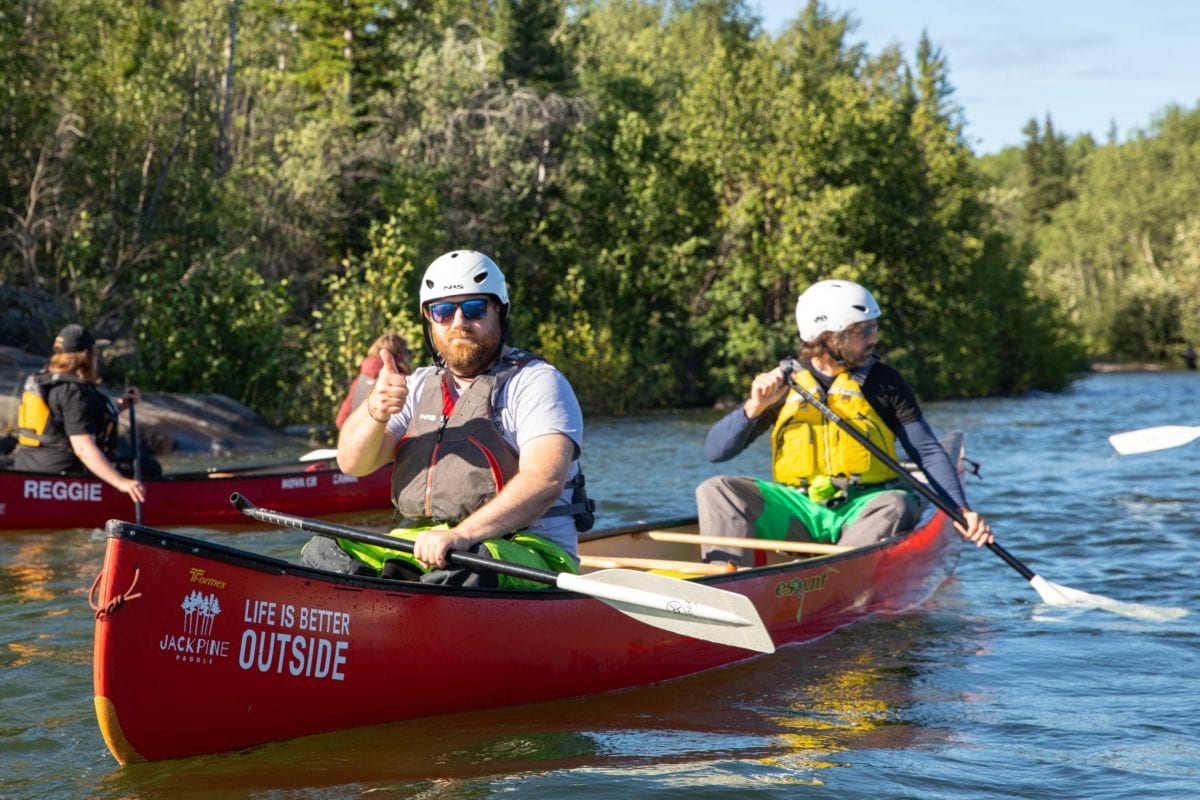Some businesses have found themselves adapting to the circumstances of the pandemic just to survive, but some, like Jackpine Paddle have found a way to thrive.
Like other tourism operators, the canoe adventure company’s traditional reliance on international tourists was halted when Covid arrived in the NWT in March and the border was closed.
Jackpine owner Dan Wong recalls the stark realization of what the pandemic would entail for an operator like him.
“I thought we were completely screwed in March. I was really worried, really stressed out like everybody was,” he said.
“(My) clientele is … about 40 per cent American, 20 per cent European and the other 40 per cent is Canadians, of which Northerners made up probably only five per cent. So when the border closed that took away our main revenue stream for the time being.”
Wong estimates that from the vantage point of March, the loss of bookings for guided, remote canoe trips represented a revenue drop of 70 per cent compared to 2019.
But rather than despair over the tourists who wouldn’t come from afar in the summer, he looked closer to home and at his company’s own roots for solutions.
Two separate routes proved successful.
The first represented what Jackpine started out doing when it opened five years ago: canoe courses.
“People in the North definitely want to discover the North. And so there’s real demand and interest in paddling because people want to learn the skills to explore these places to go on their own trip safely, and to get the most out of their time here. And that drove a lot of demand, particularly (for) whitewater canoe courses.”
Its second main route was engaging young Indigenous people through canoeing, such as the 12-day canoe trip of Deh Cho and Inuit youth along the Ingraham Trail in July; and canoe safety training in Whati and Gameti in a partnership with the Tlicho Government; with the Deline Gotine Government in Deline and in Lutselk’e with the Lutselk’e Dene First Nation.
“There’s a huge demand right now for (giving) community members and particularly youth the skills to paddle in their traditional territories,” Wong said.

The company also ran some guided canoe trips for Northerners on the East Arm of Great Slave Lake and on the Bear River.
The pivot towards Northern and Indigenous canoeists entailed more people joining the trips and courses, more usage of canoeing equipment and more staff members. Jackpine doubled its regular staff to 11 seasonal guides at the peak in July.
It all helped pull up Jackine’s finances from its spring time low of 70 per cent down to 15 per cent down compared to 2019.
The model has worked well enough that Wong feels confident he could continue with it for many more years.
“Not just make it through but have another good summer. Just continue doing what we’re doing. Assuming that there isn’t significant community spread (of Covid), because that could change things.”
When asked about the biggest challenge of the pandemic, Wong said it’s difficult seeing people defer or cancel what they consider to be trips of a lifetime in the far North.
“I hope that people can have these experiences because a lot of them are quite old. Our average (client) age is 59. And we’ve taken people out as old as 85. Sometimes that’s sad when someone’s dreamed of this experience that they want to have in the last bit of their life.”
Still, about 85 per cent of his clients who couldn’t cross the border this past summer plan to wait for next year or the year after to do their trip and many have told Wong he can keep their trip deposit.
Jackpine’s experience of the pandemic has been, in Wong’s eyes, a larger version of the daily ups and downs of managing a business.
“Running a business is a lot of work and there’s always things going wrong. Although (it’s) very rewarding, and a dream job, it is basically just like figuring out things that are going wrong. So in a sense, like this is just another thing that’s gone wrong. That’s another problem that I had to solve. And for now, we’ve figured out a way to solve it.”

